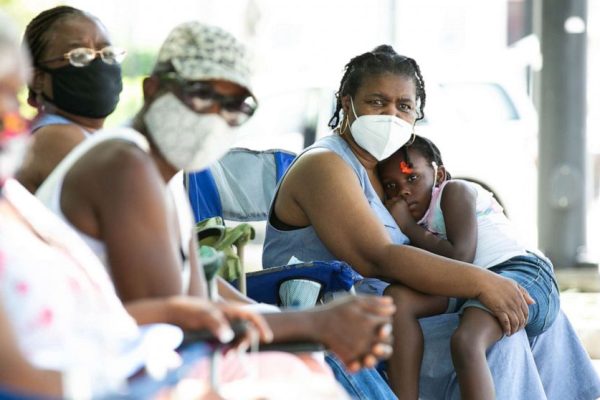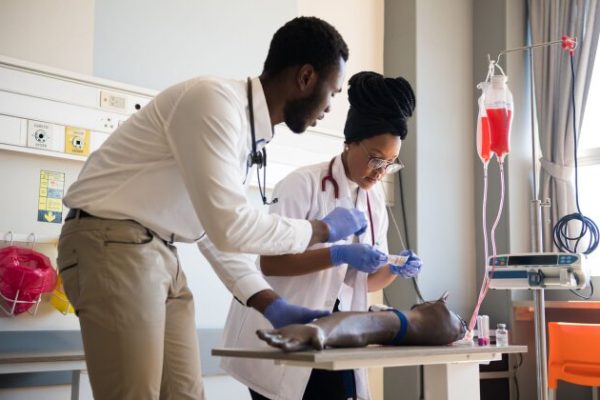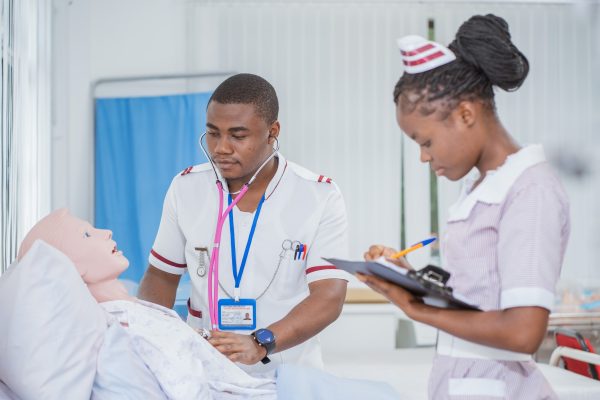School of health
At the School of Health Sciences, we’re dedicated to shaping the healthcare professionals of tomorrow. Our commitment to excellence in education, research, and patient care is at the core of everything we do. As you explore our programs and initiatives, you’ll discover a world of opportunities to embark on a meaningful journey in the healthcare field

BSc Public Health & Safety
The BSc in Public Health program is dedicated to addressing critical public health challenges and promoting well-being in communities. Students explore topics such as epidemiology, health policy, and community health, gaining the knowledge and skills to lead efforts in disease prevention, health promotion, and healthcare management. Graduates are equipped to make a meaningful impact on public health by improving the health and quality of life in populations.
Duration: 4Years

Diploma Clinical Medicine
The Diploma in Clinical Medicine program is designed to prepare students to become skilled healthcare professionals with a focus on patient care and medical practice. This program offers in-depth training in medical science, diagnosis, treatment, and clinical skills, enabling students to provide essential healthcare services and contribute to the well-being of individuals and communities.
Duration: 3Years

BSc Food & Nutrition
The BSc in Food & Nutrition program is a comprehensive exploration of the science of nutrition, dietary planning, and food science. Students learn how to assess nutritional needs, design health-conscious meal plans, and understand the relationship between diet and health. Graduates are prepared for careers as nutritionists, dietitians, and experts in promoting healthy eating and well-being.
Duration: 4 Years

Diploma Registered Nursing
The Diploma in Registered Nursing program is a rigorous training that equips students with the skills, knowledge, and compassion required to provide quality nursing care. This program emphasizes clinical practice, healthcare ethics, and patient-centered care, preparing students to become registered nurses capable of making a positive impact on the health and well-being of patients.
Duration: 3 Years

BSc Occupational Health & Safety Management
The BSc in Occupational Health & Safety Management program focuses on creating safe and healthy work environments. Students delve into topics such as workplace safety regulations, risk assessment, and occupational health management. Graduates are prepared to take on roles as safety managers, consultants, and professionals dedicated to protecting the well-being of workers and preventing workplace accidents and hazards.
Duration: 4 Years
Curriculums
Our curriculums are carefully crafted to provide a comprehensive and hands-on learning experience, ensuring our students develop the knowledge and skills they need to excel in their chosen fields and make a positive impact on the world.
BSc Public Health
Year 1: In the first year, students establish a foundational understanding of public health principles, epidemiology, and biostatistics. They explore the basics of health promotion, disease prevention, and healthcare systems.
Year 2: Year two delves into environmental health, health policy, and global health issues. Students gain practical experience through community health projects and public health research.
Year 3: Students advance their knowledge in health education, health management, and health disparities. They also have opportunities for internships and fieldwork in public health settings.
Year 4: In the final year, students engage in advanced studies, emphasizing public health leadership, program evaluation, and research. They are prepared to excel as public health professionals, capable of addressing health challenges at local, national, and global levels.
BSc Occupational Health & Safety Management
Year 1: In the first year, students establish a foundation in occupational health and safety principles, risk assessment, and safety regulations. They gain core skills in identifying workplace hazards and ensuring safety compliance.
Year 2: Year two delves into safety management systems, occupational health, and safety research. Students develop practical skills to develop safety plans and ensure health and safety in workplaces.
Year 3: Students advance their knowledge in safety culture, emergency response, and workplace safety audits. They have opportunities for internships and fieldwork in occupational health and safety settings.
Year 4: In the final year, students engage in advanced studies, emphasizing safety leadership, safety auditing, and research. They are prepared to excel as safety managers, safety consultants, and experts in occupational health and safety management.
BSc Food & Nutrition
Year 1: In the first year, students acquire a foundational understanding of nutrition science, dietary planning, and culinary arts. They learn the basics of human dietary needs and the principles of food preparation and safety.
Year 2: Year two delves into advanced nutrition, public health nutrition, and foodservice management. Students develop skills in nutritional assessment, menu planning, and food safety regulations.
Year 3: This year focuses on community nutrition, research in nutrition, and food quality control. Students have opportunities for internships and practical experience in various food and nutrition settings.
Year 4: In the final year, students engage in advanced studies, emphasizing nutritional counseling, food policy, and research. They are prepared to excel as registered dietitians, food scientists, or public health nutritionists, contributing to improved health and well-being through nutrition.
Diploma Clinical Medicine
Year 1: In the first year, students establish a foundation in basic medical sciences, anatomy, and physiology. They gain essential skills in patient care and medical examination.
Year 2: Year two delves into clinical diagnosis, medical laboratory techniques, and pharmacology. Students gain practical experience through clinical rotations and case studies.
Year 3: Students advance their knowledge in specialized areas of clinical medicine, including surgery, pediatrics, and internal medicine. They have opportunities for internships and hands-on clinical practice.
Diploma Registered Nursing
Year 1: In the first year, students establish a foundation in nursing principles, healthcare ethics, and patient care. They gain essential clinical skills and knowledge in nursing fundamentals.
Year 2: Year two delves into specialized nursing areas, including maternity nursing and psychiatric nursing. Students gain practical experience through clinical placements and patient care.
Year 3: Students advance their knowledge in nursing management, community health, and critical care nursing. They have opportunities for internships and hands-on nursing practice in various healthcare settings.
Shaping Healthcare Leaders for a Better Tomorrow
At the School of Health Sciences, we are committed to empowering individuals who will make a positive impact on the health and well-being of communities. With excellence in education, research, and practice, we’re working together to create a healthier world
